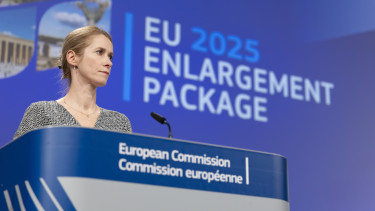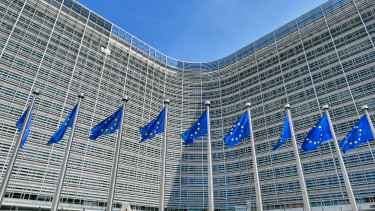The moment of truth is coming: how much money will the EU give Hungary?

The European Commission published its proposal in May 2018, setting contribution by each member state at 1.114% of average GNI in the EU. The following three presidencies (Austria, Romania and now Finland) have not reached substantial progress since then.
The Finnish presidency will now be the first to fill out the previously empty boxes with numbers, seeking to bring a really divided group of national governments to a compromise. However, not even this proposal will make suggestions for each budget item; it will instead try to find the key figures for the entire seven-year budget and its individual chapters that may take the parties closer to a solution. As part of these tactics, the current draft proposal contains ranges of numbers instead of specific figures.
Finland hopes to move talks past a dead zone and force national leaders to take a stance in at least some of the issues, while drafting an even more specific and comprehensive proposal that will then be discussed by the Council in December.
High-ranking diplomats from several member states talking to Bruxinfo, however, remain skeptical regarding the December date, which is the current non-binding deadline for the Council to close budget talks. It is true that the budget debate, which is formally about money but at least as much about politics under the surface, has never been concluded in one go. To even have a chance to finish by December, Donald Tusk, outgoing President of the European Council, would have to schedule an extraordinary summit in November before leaving office on 1 December, but there has been no sign of such a meeting. "A February or March date for the agreement therefore appears more realistic," a high-ranking diplomat told Bruxinfo.
There could be other reasons behind the delay. Tusk's successor Charles Michel will have been in office for a mere two weeks at the time of the December summit, and diplomatic sources do not expect him to begin his tenure by tackling such a hard case.
As of 1 November, the new European Commission will also enter the ring, with rather well-defined priorities (although the five-year programme of the body is not yet available), and member states generally expect Ursula von der Leyen to make changes to the budget proposal in line with the commission's political priorities. This was confirmed by Johannes Hahn, budget commissioner in the incoming EC, at his hearing in the European Parliament last week when he envisioned amending the draft budget.
One of the new elements the EC intends to include in the Multiannual Financial Framework will be a financial fund to mitigate the financial effects of the climate and energy transition, especially in countries and regions where coal-fired power plants still play a major role in electricity supply. Poland's energy minister has recently estimated the cost of decarbonisation at EUR 700 to 900 billion in coming years.
Hahn also warned that no miracles should be expected from this fair transition fund, which would have to cover a large number of regions. The Commission is already working on this financial fund, and a leaked document indicates only EUR 20 bn would be allocated over seven years for mitigating the increased burdens of a more ambitious climate target. Of this, direct funding from the budget would only reach EUR 10 bn, with the rest coming from "financial constructs" as per the InvestEU model ("the Juncker plan'", for which the budget would provide a smaller starting sum.
Meanwhile, many in Central and Eastern Europe see this "equaliser" fund as the key for agreement on the multiannual framework as it could compensate Central European countries for support lost in cohesion funding. As reported earlier, the Commission's proposal would cut cohesion funding to Hungary by 24% compared to the present cycle, the highest change allowed.
However, net contributors will also have a few words to add. Germany recently stated that it would not agree to contributions of more than 1% of GNI, adopting a position held by the Netherlands, Denmark, Sweden and Austria. According to Germany, the Brexit would increase Germany's contributions to the EU budget by EUR 10 bn a year. The difference between 1% and the EC's 1.114% proposal comes to EUR 150 bn.
According to the Netherlands, even a 1% of GNI contribution would increase its payments by 20% due to the Brexit and GDP growth. The Dutch would freeze cohesion and agricultural spending at nominal value for the next seven years, which would amount to an EUR 50 bn decrease in both funds, and would decrease spending in general, instead channelling funds to supporting digital transition and the green deal announced by von der Leyen.














